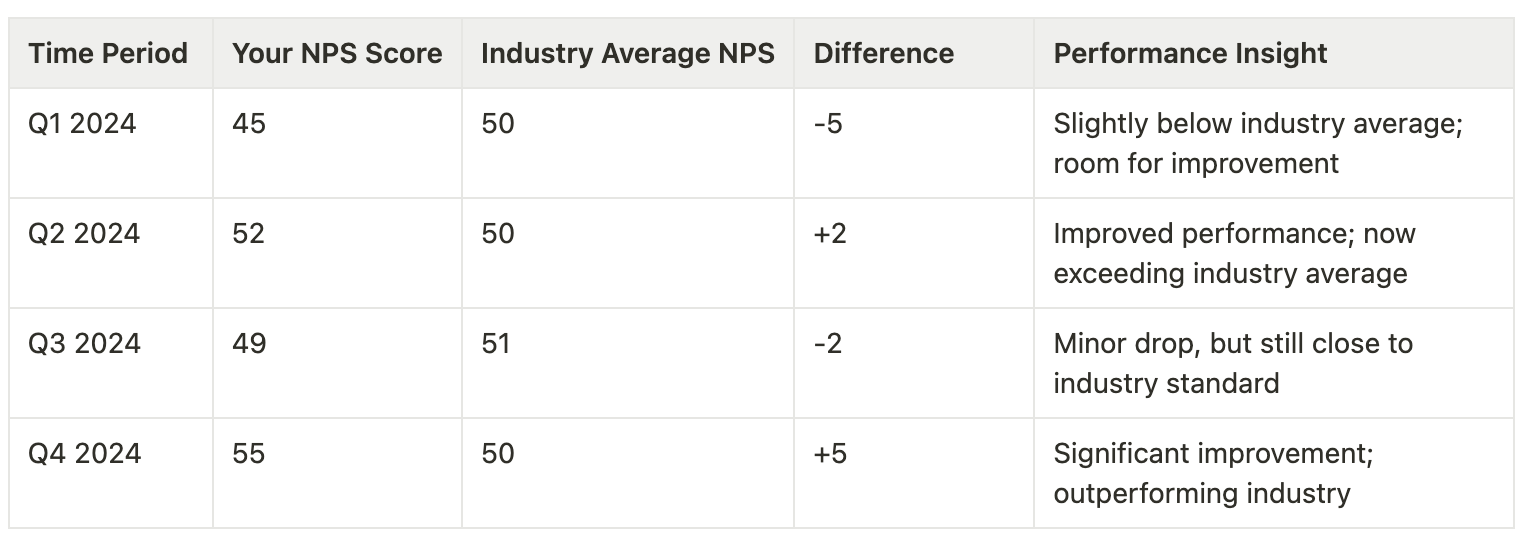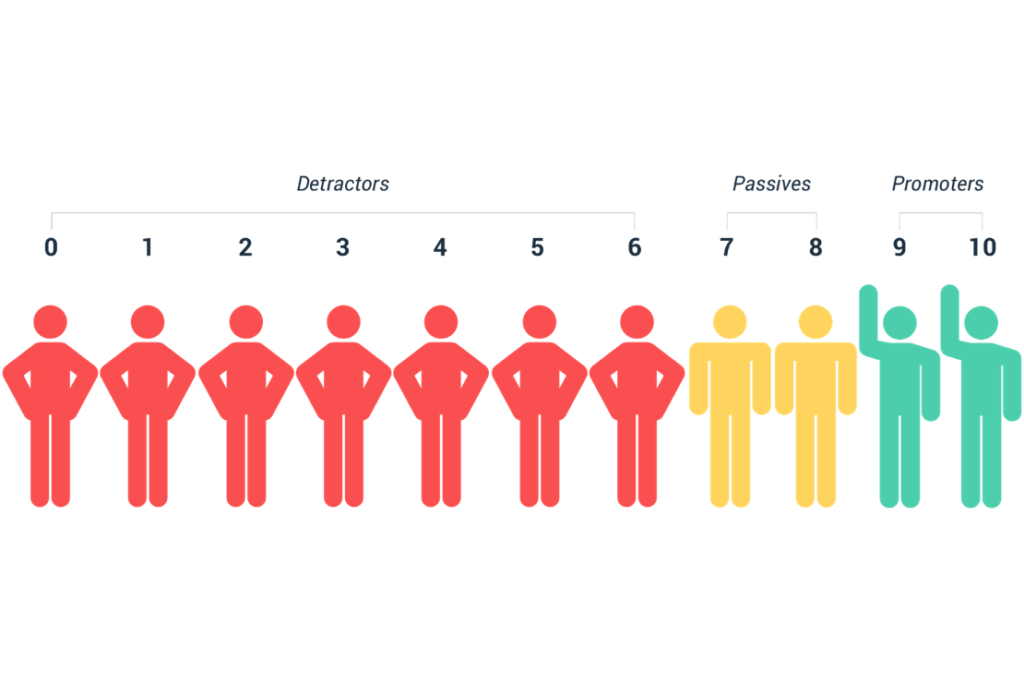Guide to Customer Satisfaction: NPS in SaaS
Last updated on Mon Sep 16 2024
What is a business without customer satisfaction? Generally, every company must strive to achieve high customer satisfaction. For SaaS companies, it is non-negotiable. The SaaS industry is highly competitive, making customer satisfaction essential for your business success.
The Net Promoter Score (NPS) is an excellent way to determine customer reactions to your services. Through efficient NPS tracking, surveys, trend identification, and utilizing customer sentiment, you can significantly improve your business.
Let us understand what NPS is all about, why it should be tracked, and other useful information. Stay tuned!
What Is NPS?
The metric revolves around a single question: “How likely are you to recommend us to a friend?” Customers respond on a scale from 0 to 10. A score of 0 represents total dissatisfaction, while a score of 10 indicates total satisfaction. Your SaaS should aim for 10s and avoid 0s.

The results from this scale are categorized into three broad groups:
Promoters (9-10):
These are enthusiastic customers with high loyalty. With encouragement, they will promote your brand and lead to referrals. Promoters are beneficial for SaaS businesses, and a high number indicates success in customer satisfaction.
Passives (7-8):
Passives are customers who use your product and may provide feedback, but they are less likely to recommend it. Their loyalty is weaker compared to Promoters, and they may switch to competitors. Your goal with passives is to convert them into Promoters.
Detractors (0-6):
Detractors may continue using your brand, but they are dissatisfied and may harm your reputation. Too many negative reviews can reduce interest in your products and services. Work to address their issues to improve both their satisfaction and your brand’s reputation. Reach out to resolve their problems.
Why Track NPS?
The bigger question is, why shouldn’t you? Customer satisfaction reflects the health of an organization, so tracking NPS is crucial for maintaining a SaaS business.
NPS is an essential metric that provides valuable insights. A high NPS signifies growth and a competitive advantage, while a low NPS reveals potential deficiencies.
Moreover, NPS helps you focus on improvement, benefiting your brand as a whole. Regularly tracking this metric allows you to identify areas where your offering may be lacking, enabling you to address issues before they escalate. Also as Younium says, understanding financial metrics can help in authentic revenue recognition for SaaS businesses that align with their financial health with customer satisfaction.
Here are some key reasons why tracking NPS is important:
1. NPS Alerts You to Problems Needing Solutions
NPS acts as an early warning system. When your Net Promoter Score declines, interact with your customers to gather feedback. Potential issues that could lead to an NPS drop include:
Dissatisfaction with a recent update
Poor customer support experiences
A neglected bug
Subpar user experience
Pricing concerns
Identifying and addressing these issues promptly can prevent further deterioration and help establish trust. In this way, a drop in NPS can be a valuable opportunity for proactive improvement.
2. NPS Allows You to Evaluate Performance Over Time and Against the Industry
This evaluation is known as benchmarking. It involves measuring your performance over a specific period and comparing it with other businesses in the same industry. This comparison shows your position and progress within the industry.
For example, consider the table below:

This table helps you see how your NPS compares to the industry average over time, aiding in the assessment of your performance and progress.
3. NPS Helps You Prioritize What Matters
NPS feedback provides insights into what your customers care about most. It helps you focus on these areas to ensure your product resonates with them.
Additionally, addressing issues highlighted by NPS feedback shows that you value your customers, which can improve loyalty. Being proactive in resolving problems helps convert more customers into Promoters and prevents wasted time and resources.
4. NPS Surveys and Tracking Are Valuable Tools for Improving Customer Satisfaction
NPS surveys reveal your customers’ current satisfaction levels, providing a roadmap for improvement. These surveys help enhance your products and ensure alignment with customer preferences and needs.
Furthermore, NPS feedback keeps you ahead of competitors. It acts as a compass, guiding you toward increased revenue. Just as an adventurer uses a compass, you need NPS to navigate challenges and opportunities.
5. NPS Identifies Promoters, Passives, and Detractors

We have highlighted the Promoters, Passives, and Detractors. Promoters are the loyal customers, Passives patronize your products but stop there, while Detractors are unreliable and may even damage your reputation. But how are you to handle each group?
The Promoters need to be encouraged and leveraged. As your loyalists, ensure the mutual relationship remains strong. Use different tools like referrals, testimonials, rewards, and personalized messages.
When Promoters are happy, they’ll draw in new customers, a win-win for you all. If you have a high number of Promoters, then congratulations! But do not relent. Customer retention is crucial at this stage.
Passives should be nurtured so they can become Promoters. They are better placed compared to Detractors but need to transition. Encourage more feedback, and listen to what they offer. Implement any possible updates to enhance their experience.
Detractors often require more work, but the payoff is worth it if they convert. Use personalized messages, creative steps, and special offers to bring them back. Even if the detractors leave, your experience with them can help in brand growth.
Conclusion
A successful business prioritizes its customers, treating them with respect and aiming for their satisfaction. NPS is a vital tool in achieving high customer satisfaction.
Let NPS guide your decisions regarding your users, and be ready to improve where necessary.